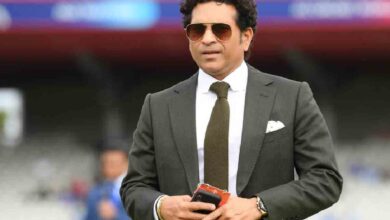

Vapi (Gujarat), 20 June 2025: Meril Life Sciences, a leading global med-tech company, marked a significant milestone with the launch of MyClip, India’s first Transcatheter Edge-To-Edge Repair (TEER) system, on June 14. The landmark Structural Heart Innovation event, held at Meril Academy, Vapi (Gujarat) from June 13–15, brought together over 150 Indian interventional cardiologists along with cardiac imaging expert and international stalwarts, including Prof. Ottavio Alfieri (“Father of mitral valve repair”), Prof. Francesco Maisano, and Prof. Agricola, joining global pioneers in edge-to-edge mitral valve repair. Meril is currently the world’s leading TAVI group following the success of Myval THV and first Indian company to introduce a TEER system, placing the country firmly on the map as an innovator in transcatheter heart valve therapies (with both replacement and repair technology platforms). MyClip introduction demonstrates India’s growing capabilities in structural heart solutions and reflects Meril’s commitment to accessible cutting-edge cardiac care. MyClip TEER System is designed for patients suffering from severe Mitral Regurgitation (MR) who are at high surgical risk due to pre-existing issues like hypertension, diabetes, obesity, advanced age, physical frailty, enlarged or weak heart, and patients with kidney, lung and liver problems. MR, particularly if untreated, has a devastating mortality rate—over 50% of patients may not survive without timely intervention, and 1-year mortality can be as high as 57%.
The MyClip TEER System enables precise closure of the mitral valve flaps, effectively preventing the backward flow of purified blood into the lungs. The procedure is minimally invasive, & takes approximately one hour, and allows patients to return home within 3–5 days. After discharge, patients can resume daily activities like walking and non-strenuous work within a short period post the procedure. According to the landmark COAPT Study published in the New England Journal of Medicine (NEJM), patients receiving device-based therapy for mitral regurgitation experienced significantly better outcomes compared to those receiving standard medical treatment. Within 24 months, the hospitalization rate for heart failure was reduced to 35.8% per patient-year in the device group, compared to 67.9% in the control group. Additionally, mortality within the same period was notably lower in the device group, at 29.1%, compared to 46.1% in the control group. Currently, approximately 150 TEER (Transcatheter Edge-to-Edge Repair) procedures are performed annually in India, with the majority of patients falling in the younger age group (30 – 60). These statistics bring to light a pressing need for early and effective intervention in younger demographics. The launch of MyClip TEER System marks a transformative moment for structural heart therapy in India. Transcatheter Edge-to-Edge Repair (TEER) therapy has shown significant success over traditional Guideline Directed Medical Therapy (GDMT). MyClip represents a major step forward in India’s cardiovascular treatment landscape. In his inaugural speech, Sanjeev Bhatt, Senior Vice President of Corporate Strategy at Meril Life Sciences, said, “In India, around 1.5 million people are known to have severe mitral regurgitation. Of these at least 1.2 million are post myocardial infarction (MI or a heart attack) or due to heart failure. Introduction of the MyClip TEER system marks a pivotal shift and we’re witnessing early adoption. Meril’s efforts in training cardiologists and building TEE-based imaging expertise are crucial steps in scaling this life-saving therapy across the country.” “With MyClip, Meril is reshaping the country’s role in global medtech. This homegrown innovation is a testament to what Indian science, engineering, and clinical collaboration can achieve together. Meril’s nationwide public awareness campaign #TreatmentZarooriHai is in full swing, with brand ambassador MS Dhoni, to educate patients and families about the life-saving value of timely intervention in mitral valve regurgitation,” Mr. Bhatt added. The two-day Structural Heart Innovation scientific program featured case demonstrations, interactive hands-on workshops, and the presentations leading Interventional Cardiologists and Echocardiologists. The event concluded with a call to build a sustainable M-TEER ecosystem in India, focused on accessibility, clinical excellence, and continuous innovation.



